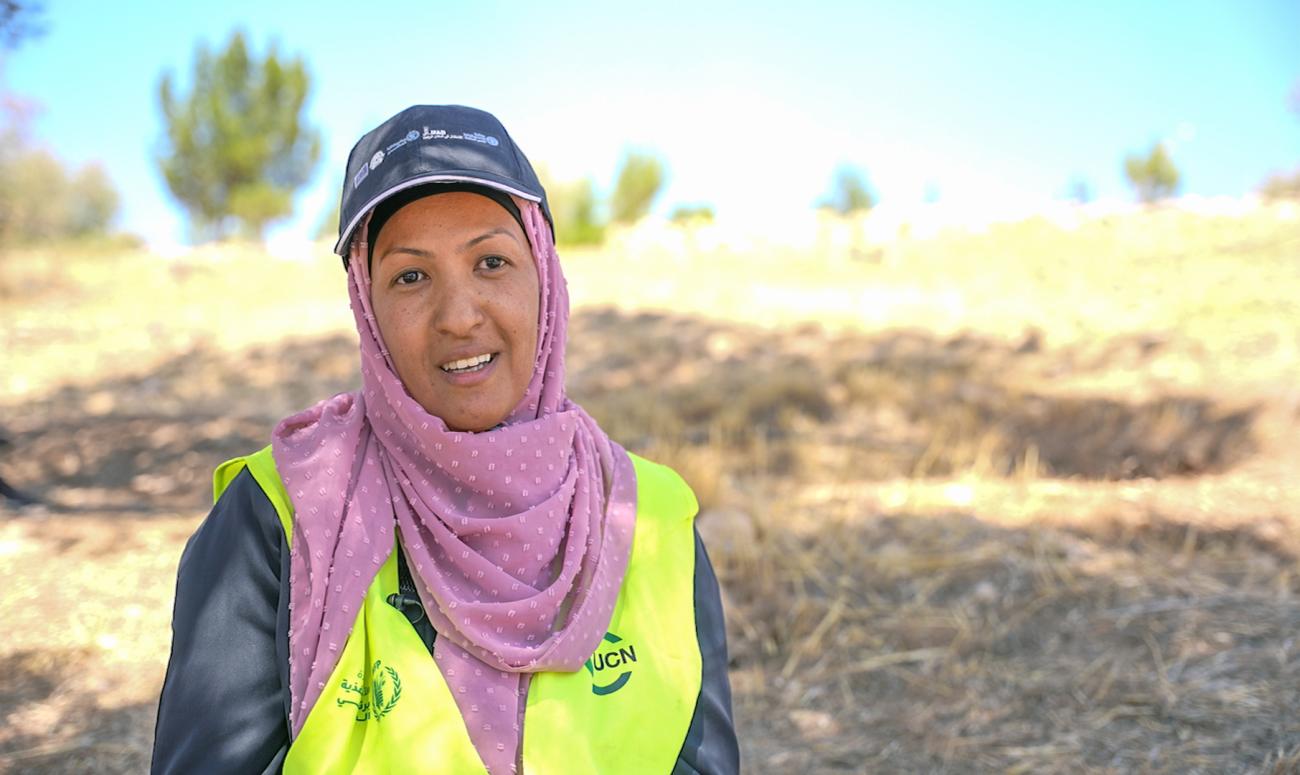WFP empowers women through agricultural activities

A story of hope, resilience, and the power of opportunity.
Asmahan found herself as a sole provider for her family after her husband became unemployed due to illness. With some initial hesitation, she decided to apply for a job at the Ministry of Agriculture’s site in Jerash, a city in northern Jordan participating in the MADAD project, a joint effort between the United Nations World Food Programme (WFP), the Food and Agriculture Organization (FAO), and the International Fund for Agricultural Development (IFAD). Funded by the European Union (EU), the project aims to enhance resilient livelihoods and food security for more than 260,000 Jordanians and Syrian refugees. Through her employment, Asmahan was able to receive training and acquire valuable experience in various agricultural methods such as removing weeds to control fire hazards, soil preparation, plantation, irrigation and harvesting.
For more than fifty years, WFP has been a valuable partner in Jordan, providing strategic and operational assistance to the Jordanian government, while bolstering the capabilities of national institutions, policies, and programmes. Through a diverse range of initiatives, WFP is addressing the impacts of climate change and the needs of refugees, while also providing livelihood support to the most vulnerable Jordanians.
By taking on this opportunity, Asmahan not only became financially independent but also gained the confidence to express herself, obtain knowledge and share it with others. While working at the site, she connected with women from the region who inspired her to recognize her own potential and make a meaningful impact. "Being able to meet individuals outside of my close circle has given me a greater sense of confidence,” Asmahan says. "I used to live in my own bubble, but now I feel more empowered and capable of achieving anything I want."
Alongside its efforts to promote economic stability and food security for vulnerable communities, WFP Jordan has introduced a novel approach to delivering entitlements to individuals involved in livelihood activities through mobile money. This allows participants to redeem their monthly entitlements via their own financial accounts (electronic wallets), becoming regular customers of Jordanian financial service providers and unlocking the possibility of using them for other financial activities, including facilitating transfers and bill payments.
"You have no idea how absolutely thrilled and in full control I felt when I received my first entitlement from this project. Even my kids were so excited and asked me to buy them the stationery they had dreamed about for weeks to use at school," says Asmahan.
WFP is not solely providing financial resources to vulnerable individuals to help sustain their families, but also enabling women such as Asmahan to gain self-assurance, expertise, and ownership of their financial prospects.
Despite women’s high educational attainment, prevailing social norms in the country allow relatively few women to be economically active, and they are mainly employed in a limited number of sectors such as education, health and social work.
"When I reflect on my previous experiences, I am inspired to apply what I've learned to build a more sustainable and profitable future. My ultimate goal is to rent a piece of land and cultivate crops that provide both a source of income and contribute to the preservation of the environment."
Asmahan's experience is one of numerous examples illustrating the positive effects of WFP's activities on changing the lives of people in Jordan. Through its efforts to address climate change challenges on the ground, including land reclamation, forest and pasture development, water collection, soil protection, and conservation measures, WFP is significantly improving the lives of those most in need.
Asmahan's story is a story of hope, resilience, and the power of opportunity.



